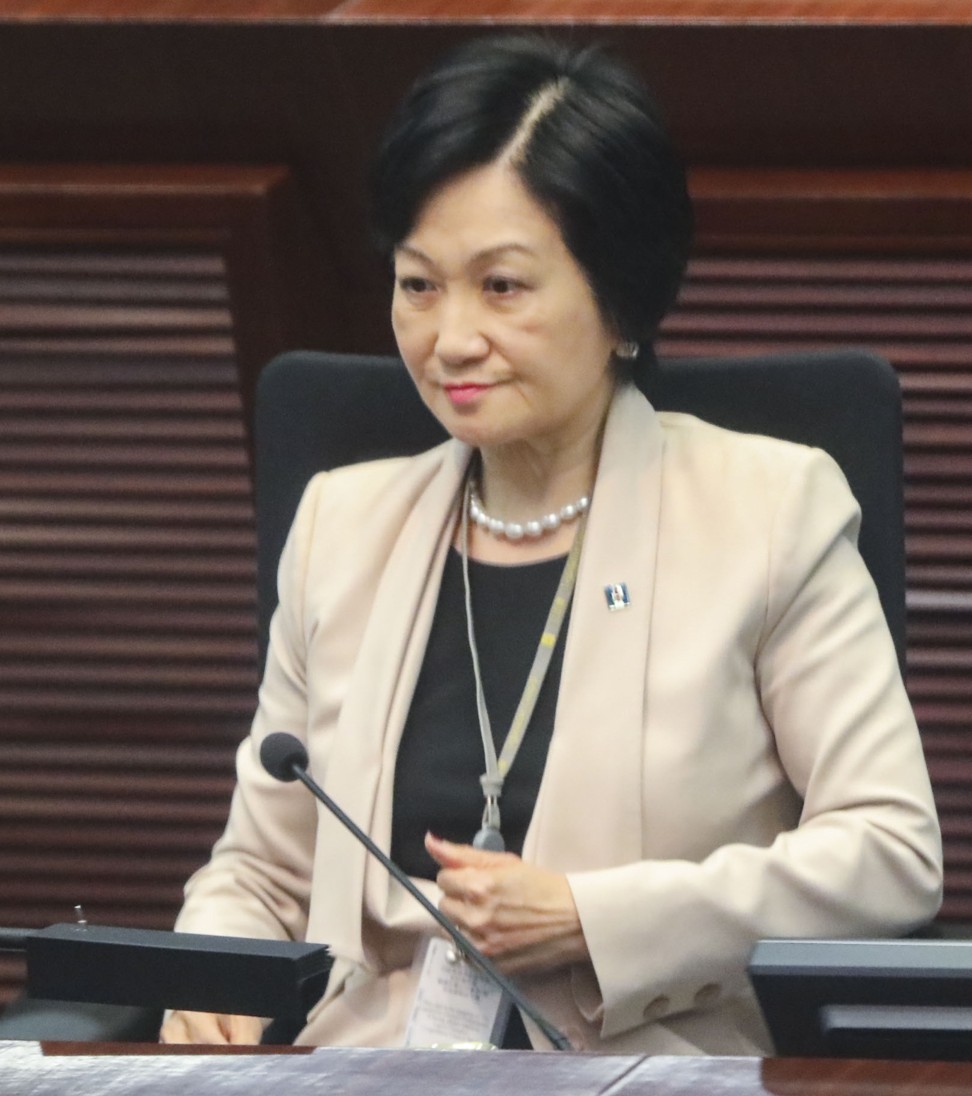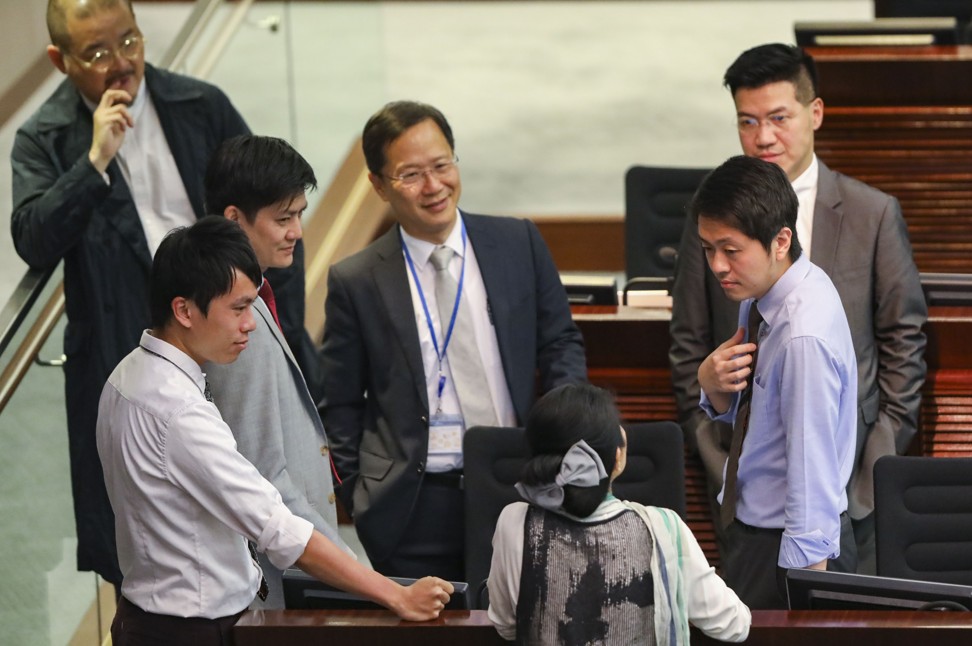
Hong Kong parties split over fate of phone-snatching lawmaker Ted Hui
Pro-establishment bloc begins process of trying to have Hui sacked, but pan-democrats ask: What about Holden Chow?
The motion, raised by New People’s Party chairwoman Regina Ip Lau Suk-yee, was discussed in the Legislative Council’s House Committee.
It stemmed from an incident last week when Hui snatched a female civil servant’s phone, and dashed into the men’s toilet. The woman was trying to marshal lawmakers into a meeting to discuss a government bill, but Hui felt it was wrong for the government to send civil servants to monitor lawmakers’ whereabouts. Hui later apologised to the woman and the public.
“Such acts that defy laws and clash with government officials are unacceptable, even for ordinary citizens, let alone lawmakers who bear higher expectation from the public,” Ip said, illustrating the need to censure Hui over his “misconduct”.

The motion was echoed by her allies in the pro-establishment camp, some of whom criticised the pan-democrats for standing by Hui.
“The incident is apolitical. It is merely about Hui’s personal ethnics … if you also believe this is wrong, why do you uphold a double standard?” said Wong Kwok-kin, of the Federation of Trade Unions.
The pro-democracy camp, opposing the motion, made it clear they found Hui’s actions unacceptable. But they said kicking him out would be a disproportionate response.
The Civic Party’s Alvin Yeung Ngok-kiu said the party had already condemned Hui.
“I hope the pro-establishment camp could reflect on whether each of you can be regarded as an ‘honourable’ lawmaker,” Yeung said. “We should leave it for the voters to decide [if Hui is fit to be lawmaker].”
Phone-snatch row: Hong Kong lawmaker Ted Hui should have resigned to keep his dignity
Kwok suggested it was the pro-establishment camp that was shielding a colleague with integrity issues, and who was “the shame of Legco”.
Wu Chi-wai, the chairman of the Democratic Party that suspended Hui, added: “Hui has already openly apologised to the public … that showed his abilities of self-reflection.”
Responding to the debate, Hui, who is still under police investigation, admitted he was wrong and said he would accept any decision made by Legco.

However, he repeatedly urged the government to stop monitoring the whereabouts of lawmakers.
The debate on Friday was the first step to kick Hui out of Legco, to be followed by Ip raising the motion officially at a full council meeting on May 23.
Pro-establishment groups in Hong Kong begin moves to have phone-snatch lawmaker Ted Hui sacked
If, as expected, the motion passes, that will trigger an investigation, after which the motion would be put to a vote.
If two-thirds of lawmakers support the motion, Hui would be booted out of Legco.
There are 42 pro-establishment lawmakers, which is almost two-thirds of the council, meaning they would only need the backing of a handful of other legislators to have Hui removed. But given the split between the rivals camps, there was little chance of that.
On Thursday, Hui wrote to Privacy Commissioner Stephen Wong Kai-yi asking for clarification on its stance on the government practice of monitoring lawmakers.
In response, Wong said in a statement that monitoring does not constitute unfair or unlawful collection of personal data.

